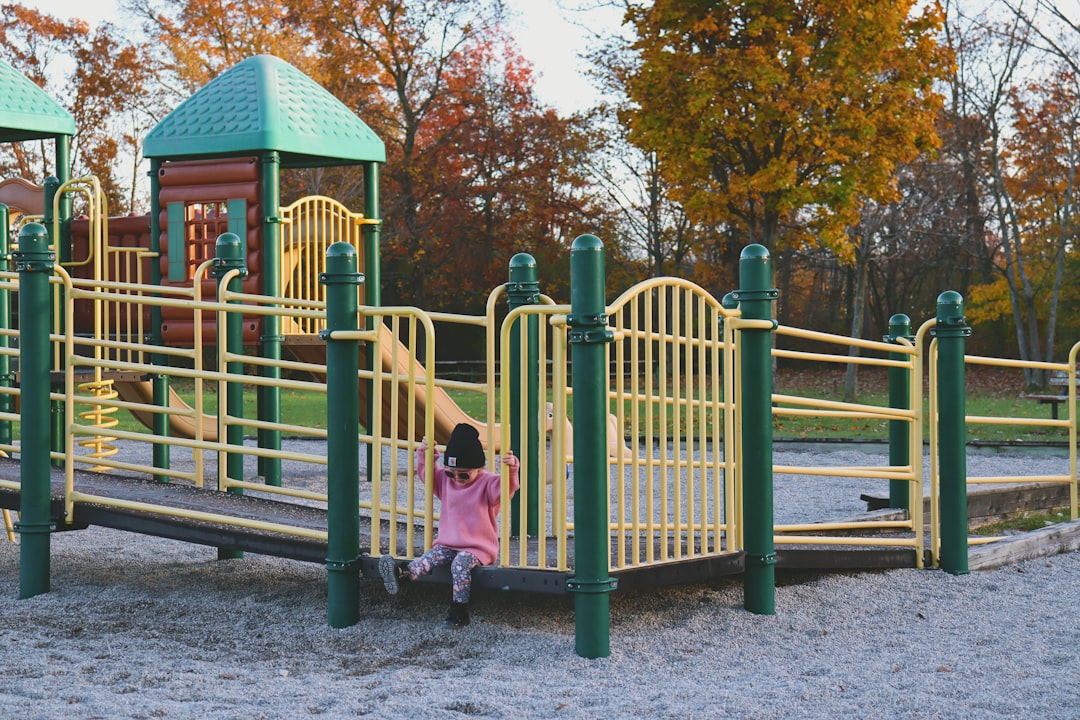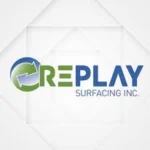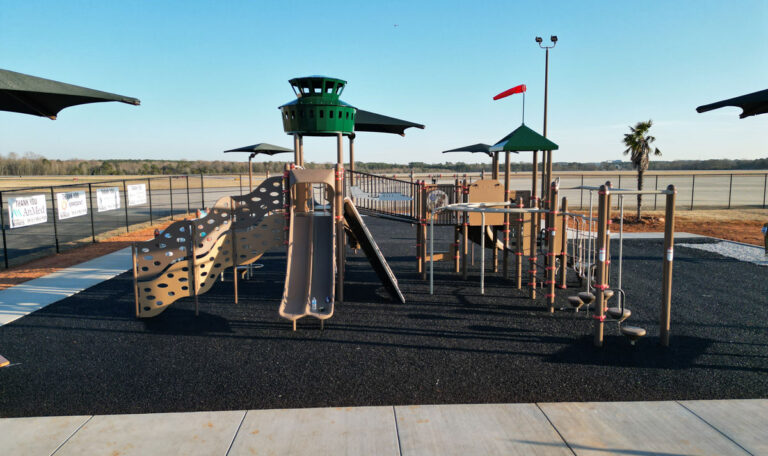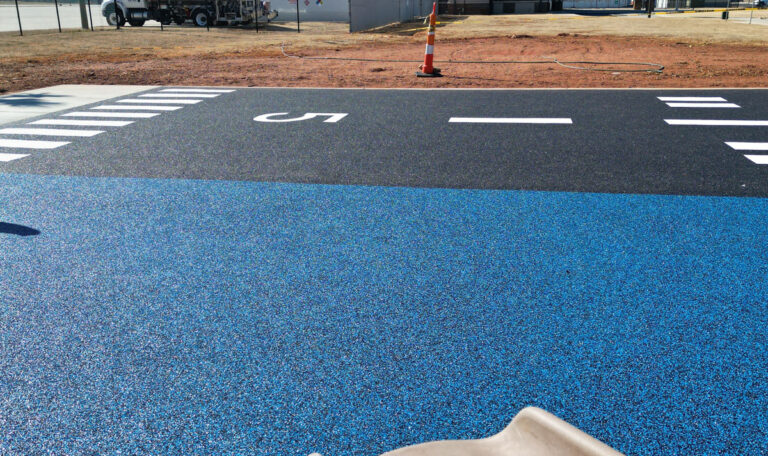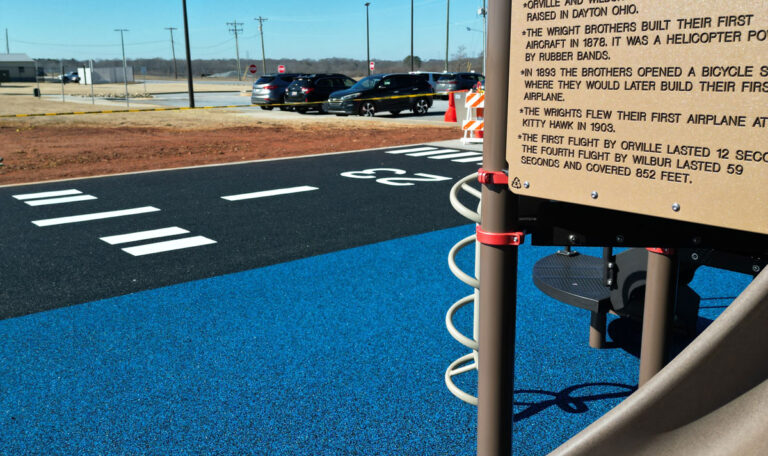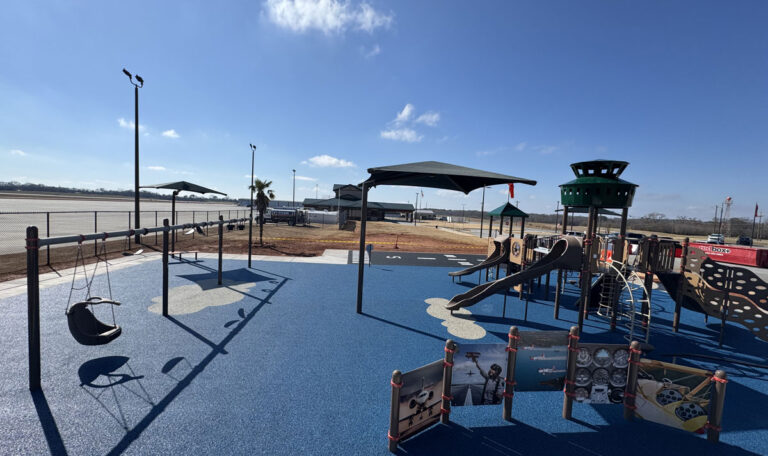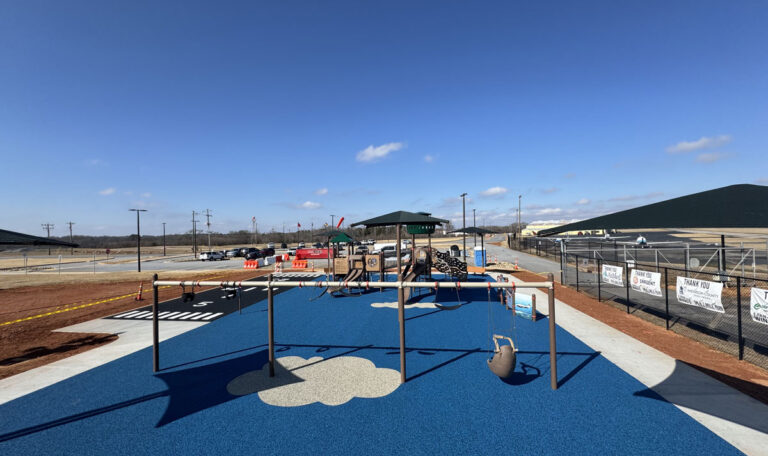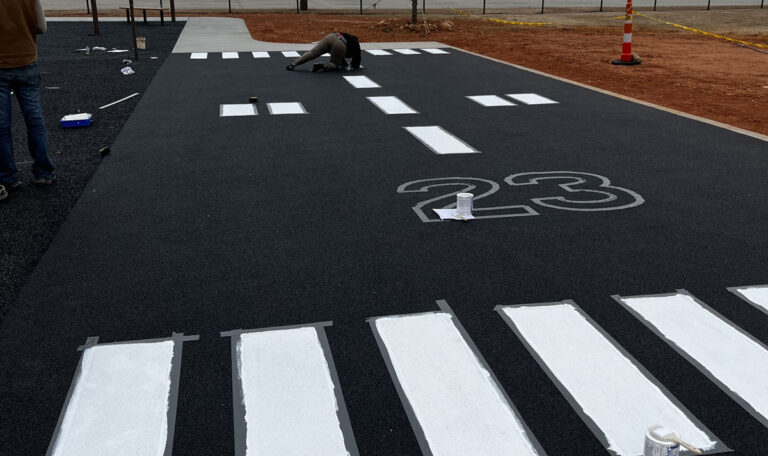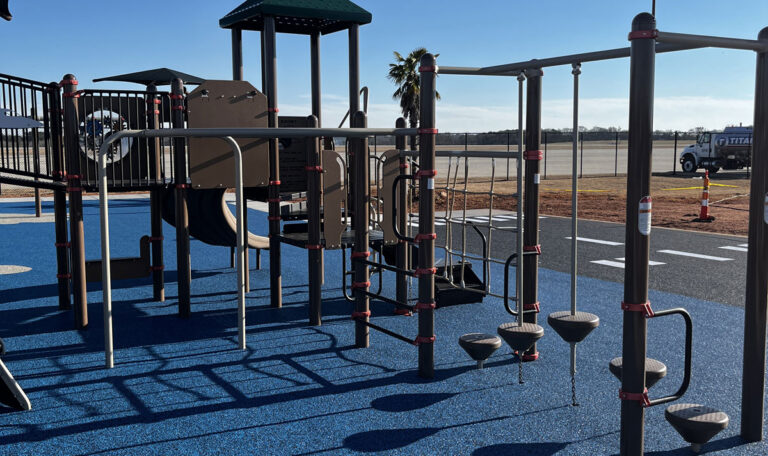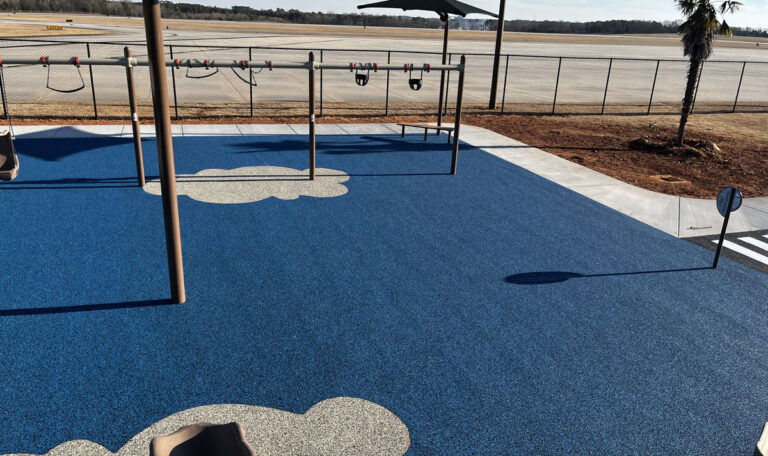Creating Safe and Fun Play Spaces with Soft Flooring
When choosing play area soft flooring, consider these essential factors:
- Safety: Prioritize materials with appropriate Critical Fall Height (CFH) ratings to protect against falls.
- Material Type: Common options include rubber tiles, poured-in-place rubber, artificial turf, and foam mats, each with unique benefits.
- Durability: Select flooring designed to withstand heavy use and various weather conditions.
- Maintenance: Look for surfaces that are easy to clean and require minimal upkeep.
- Location: Ensure the flooring is specifically suited for either indoor or outdoor environments.
Playgrounds are where children explore and grow, but for true fun, safety must come first. High-quality soft flooring is essential, as it’s designed to absorb impact and significantly reduce the risk of serious injuries from falls. This cushioning makes playtime safer and more enjoyable. As one advocate puts it, “A safer play space starts with the right flooring, and with these affordable rubber tiles, you’ll no longer have an excuse to not provide the best in playground surfacing.”
Landon Olson, operator of Replay Surfacing, is dedicated to changing scrap tires into high-quality, sustainable play area soft flooring. With a background in mechanical engineering and an MBA, he creates safe, eco-friendly products for various industries. This guide will walk you through selecting the perfect soft flooring for your play area.
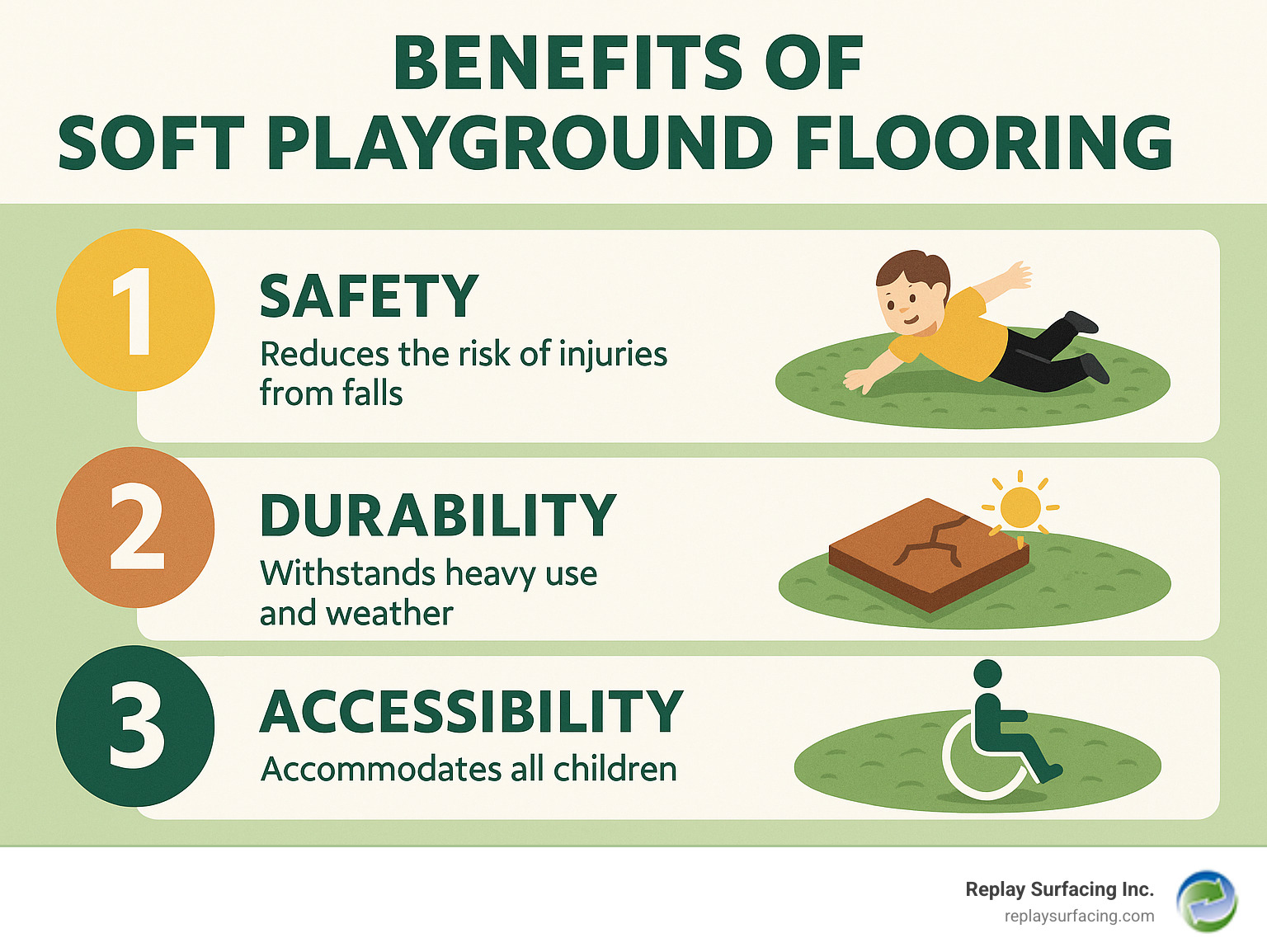
Handy play area soft flooring terms:
Why Safety Surfacing is Non-Negotiable: Understanding Fall Protection
Most playground injuries result from falls, which is why the surface underneath the equipment is as important as the equipment itself. High-quality play area soft flooring is a critical safety feature. This special flooring is designed to absorb the energy of a fall, a process known as impact attenuation, which dramatically reduces injury severity. A key safety metric is the Head Injury Criterion (HIC), which measures the likelihood of a head injury from an impact. Properly installed soft surfacing significantly lowers the HIC value, making play much safer. We adhere to strict guidelines from the U.S. Consumer Product Safety Commission (CPSC) to ensure our surfacing meets the highest safety standards. You can review these standards in the U.S. Consumer Product and Safety Commission guidelines. Our commitment to providing Shock Absorbing Playground Surfaces demonstrates our dedication to protecting every child.
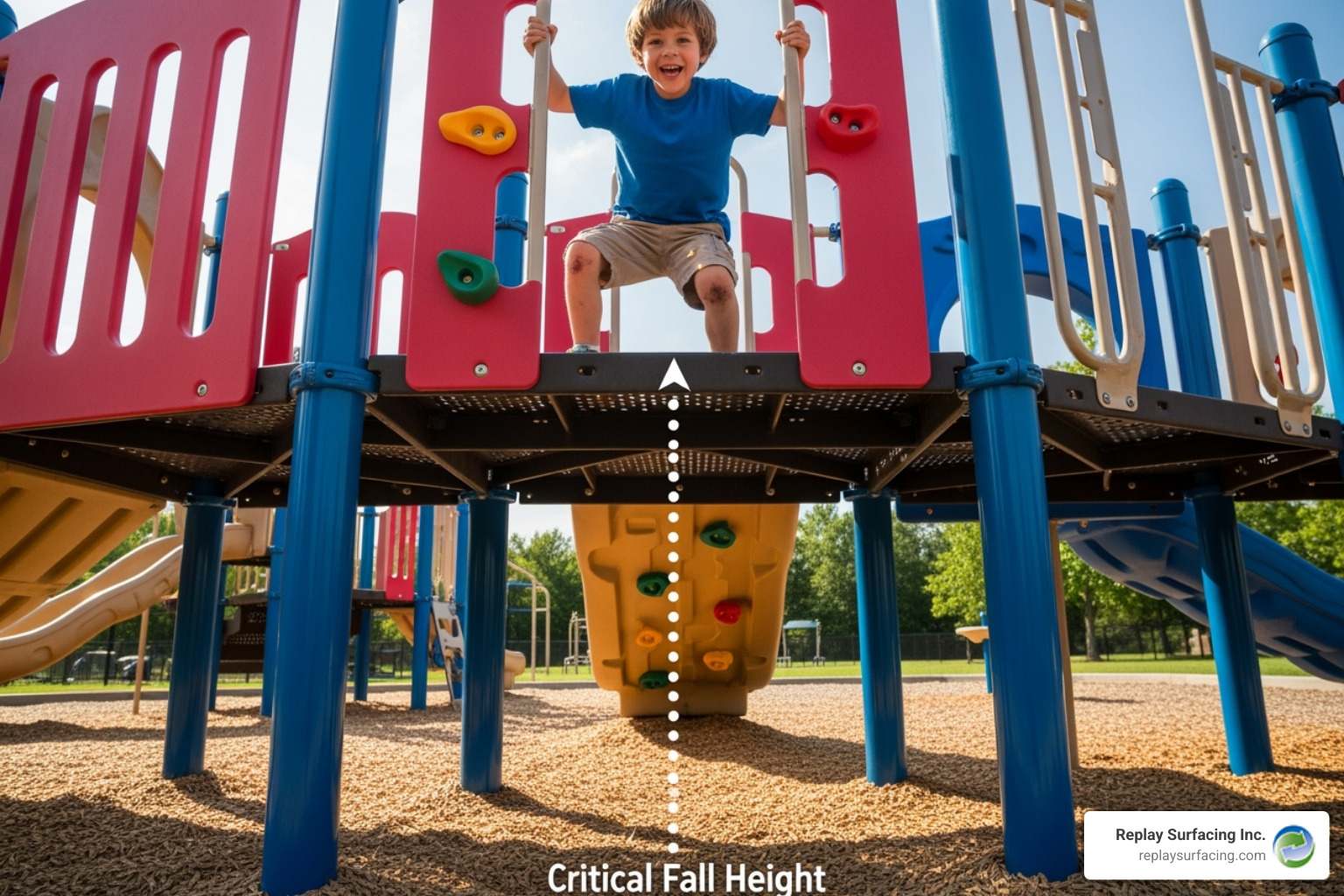
What are Critical Fall Height (CFH) and ASTM Ratings?
A key term in playground safety is Critical Fall Height (CFH). CFH is the maximum height from which a child can fall onto a play area soft flooring surface without sustaining a life-threatening head injury. It is the cornerstone of safe playground design. To ensure our surfaces meet these safety levels, we adhere to standards like ASTM F1292, which specifies how well surfacing materials must absorb impact. A material must be rigorously tested and rated for specific fall heights. For example, a 2.25-inch rubber tile might be certified for a 4-foot fall, while a 5-inch tile could protect from a 10-foot fall. Even 1.5-inch indoor tiles can offer a 4-foot ASTM rating.
Matching the flooring thickness to your equipment’s height is vital. An 8-foot slide requires surfacing with at least an 8-foot fall protection rating. This is a non-negotiable CPSC compliance requirement for public spaces. Whether planning a park in Raleigh, NC, a school playground in Columbia, SC, or a recreational area in Tucson, AZ, meeting these standards is the most important step.
Exploring Types of Play Area Soft Flooring
Choosing the right play area soft flooring requires balancing durability, aesthetics, maintenance, and budget. The market offers a range of options, and finding the best material for your play space depends on your specific needs and how the area will be used.
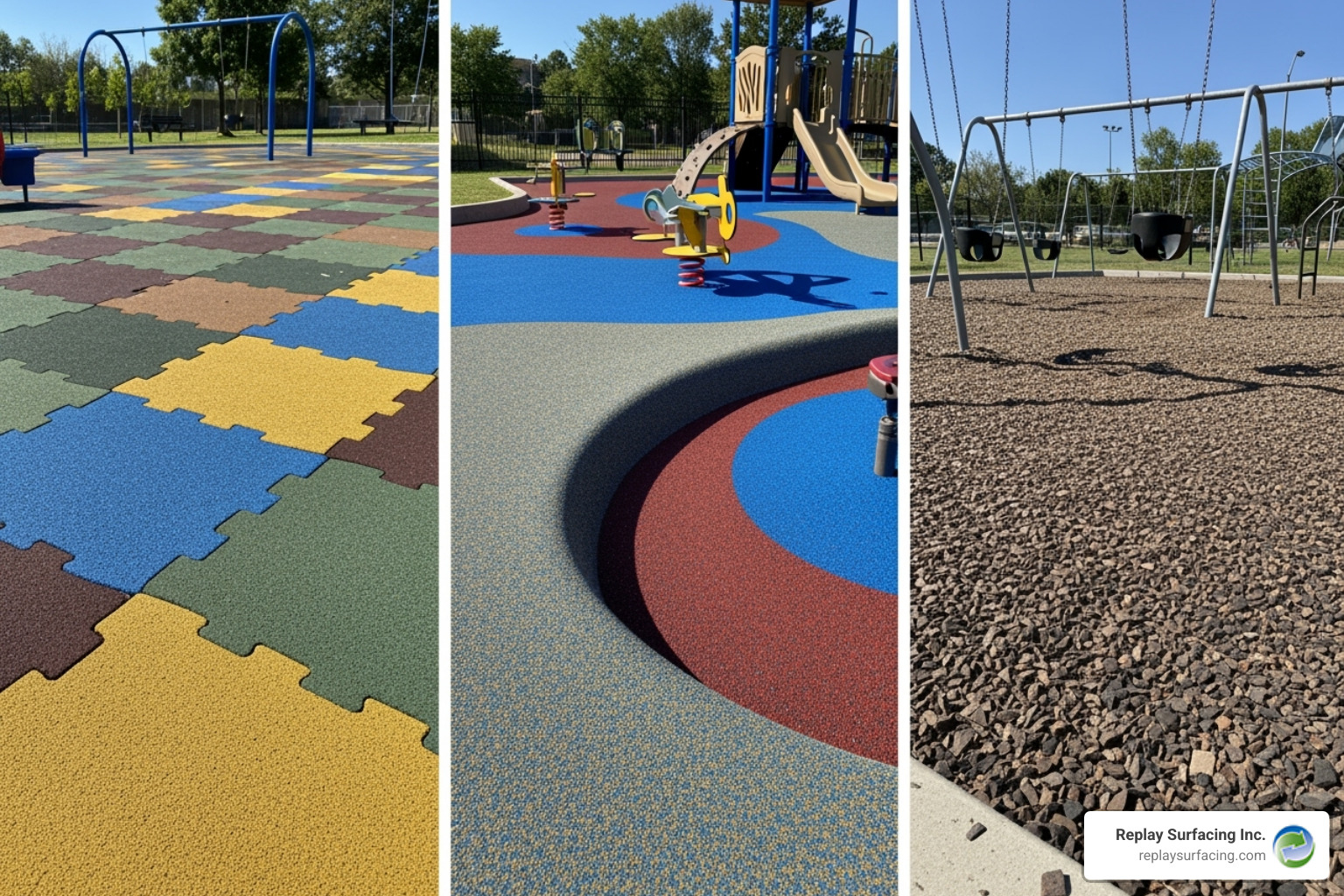
Rubber-Based Solutions: The Gold Standard
For safety, durability, and sustainability, rubber-based solutions are the gold standard for play area soft flooring. At Replay Surfacing, we specialize in turning recycled tires into high-performance surfaces, changing an environmental challenge into a safe play solution.
Here’s a quick look at how some popular options stack up:
| Material Type | Cost (per sq ft) | Durability | Maintenance | DIY-Friendliness |
|---|---|---|---|---|
| Poured-in-Place Rubber | High | Very high (12-15 years+) | Very low (occasional cleaning) | Low (Pro-install) |
| Interlocking Rubber Tiles | Medium-High | High (10+ years, 10-year warranty common) | Low (hosing off, replacing individual tiles) | Medium-High |
| Bonded Rubber Mulch | Medium-High | High (10+ years) | Very low (occasional cleaning) | Low (Pro-install) |
| Loose Rubber Mulch | Low-Medium | High (10+ years) | High (topping off, raking) | High |
Let’s explore these rubber options:
- Poured-in-Place Rubber: This seamless surface is created by mixing rubber granules with a binder and pouring it on-site. It’s highly versatile, allowing for custom colors and designs, making it a popular choice for parks and schools in Nashville, TN, and Charlotte, NC. It can last 12-15 years with minimal care. Our Wetpour Rubber Surfacing creates a smooth, continuous surface that eliminates trip hazards.
- Interlocking Rubber Tiles: These pre-made, recycled rubber tiles offer excellent fall protection and are easy to install, making them ideal for community projects or a backyard in Sanford, NC. Their modular design is a key benefit; a damaged tile can be replaced individually. Our tiles come with strong warranties, such as a 10-year warranty for some 2.25-inch tiles. For targeted protection, our Playset Rubber Mat options are perfect.
- Bonded Rubber Mulch: For a natural look with more stability than loose mulch, bonded rubber mulch is an excellent choice. Shredded recycled rubber is mixed with a binder and compacted to create a firm, cushioned surface. It provides an earthy aesthetic without the constant raking required by our Loose Rubber Mulch, offering a more permanent, low-maintenance solution.
At Replay Surfacing, we are committed to creating Recycled Tire Playground Flooring. We recycle over 300,000 tire casings annually, converting over 10,000 tonnes of rubber granulate into durable, safe, and beautiful play surfaces.
Other Popular Soft Flooring Options
While rubber is our specialty, other materials also offer benefits for play area soft flooring:
- Artificial Turf: Offering a green, low-maintenance look, artificial turf can meet ASTM fall height ratings when combined with proper padding. It costs about $3 to $6 per square foot and dries quickly after rain, a great feature for climates in Lake Charles, Louisiana, or Connecticut.
- Engineered Wood Fiber (EWF): A classic, affordable loose-fill material made from processed wood. EWF provides good impact absorption but requires regular raking and topping off to maintain its protective depth and accessibility.
- EVA Foam Tiles: Ideal for indoor or temporary play zones, these lightweight tiles are easy to install and colorful. Costing $3 to $5 per square foot, some can provide up to a 4-foot fall height rating, perfect for toddler areas.
- PVC Plastic Tiles: These tough, waterproof tiles are easy to install and clean, costing $3 to $5 per square foot. They are durable for both indoor and outdoor use, withstanding various weather conditions.
Each option has its place; the best choice balances safety, aesthetics, maintenance, and budget.
Key Considerations for Your Playground Project
Planning a playground in Beaverton, OR, or a backyard in Indiana, involves more than selecting a material. It requires careful budgeting, assessing long-term value, site preparation, and considering the local climate.
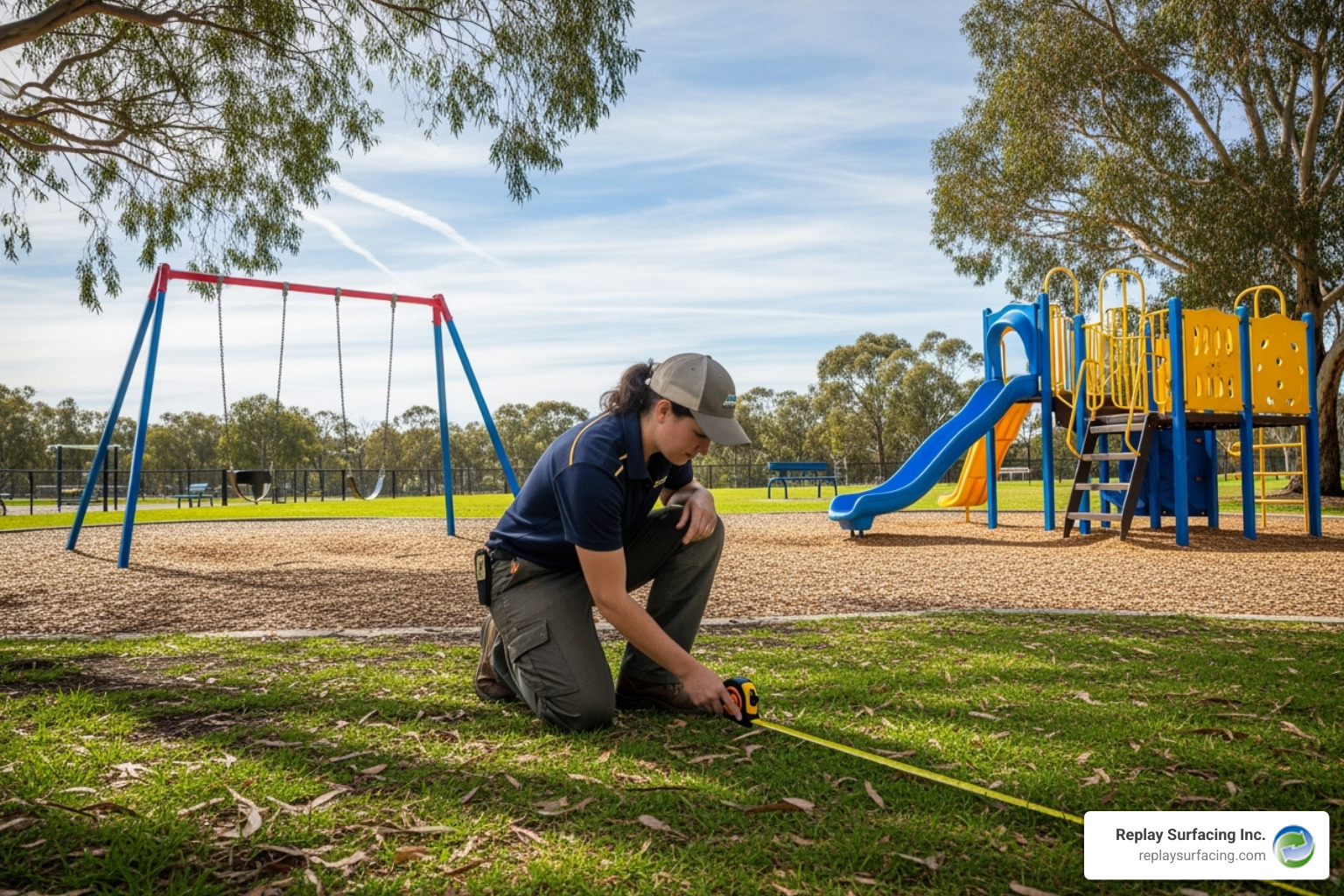
Choosing the Right Play Area Soft Flooring: Indoor vs. Outdoor
The environment dictates the ideal play area soft flooring.
Outdoor flooring must be:
- UV Resistant: To prevent fading and degradation from sun exposure. High-quality rubber and turf are designed for this.
- Water Permeable/Durable: Surfaces must handle rain and temperature extremes. Porous options like poured-in-place rubber allow for quick drainage.
- Drainage: Proper drainage is critical to prevent water damage, mold, and mildew.
Indoor flooring requires:
- Easy Cleaning: Non-porous materials like certain rubber and PVC tiles are ideal for hygiene.
- Noise Absorption: Soft surfaces reduce noise, creating a more pleasant environment in enclosed play centers in Charlotte, NC.
- Fire Safety Ratings: Fire retardancy is a crucial safety requirement for public indoor spaces.
Budgeting for Your Project: Costs & Maintenance
The total cost of play area soft flooring includes the initial purchase, installation, and long-term maintenance.
- Material Costs: Rubber mats typically cost $5-$8/sq ft, artificial turf $3-$6/sq ft, and PVC/EVA foam $3-$5/sq ft. Poured-in-place rubber has a higher upfront cost but offers excellent long-term value.
- Installation Costs: DIY-friendly options like interlocking tiles can save money, while poured-in-place and bonded rubber require professional installation.
- Long-Term Maintenance: Unitary surfaces (poured rubber, tiles) require minimal cleaning. Loose-fill options (wood fiber, rubber mulch) need regular raking and topping off.
- Warranty & Lifespan: Look for strong warranties (5-10 years for tiles/turf). Poured-in-place rubber can last 12-15 years, offering a great return on investment.
For detailed financial planning, see our guide on Understanding Rubber Playground Surfacing Costs.
Beyond Safety: Additional Benefits of Soft Surfaces
Beyond safety, play area soft flooring offers other key advantages:
- ADA Accessibility: Many options are ADA compliant, providing smooth, stable surfaces for wheelchairs and ensuring inclusive play for all children, a core value in our projects from Tucson, AZ, to Connecticut.
- Customization and Aesthetics: A vast array of colors allows for creative designs, patterns, and logos, changing play areas into vibrant spaces. See examples with our Colored Rubber Surfaces for Playgrounds, perfect for a custom design in Nashville, TN, or a school mascot in Sanford, NC.
- Sustainability: At Replay Surfacing, we transform discarded tires into safe, durable playground surfaces. Choosing our 100% recycled products means investing in safety and a greener future by diverting waste from landfills.
- Noise Reduction: Soft flooring significantly reduces ambient noise, creating a more pleasant environment, especially indoors.
The Installation Process: DIY vs. Professional
After choosing your ideal play area soft flooring, the next step is installation. Correct installation is crucial for safety and longevity. Proper site preparation is key, regardless of the material. This involves creating a level, compacted sub-base (often crushed stone) to prevent shifting, sinking, and drainage problems.
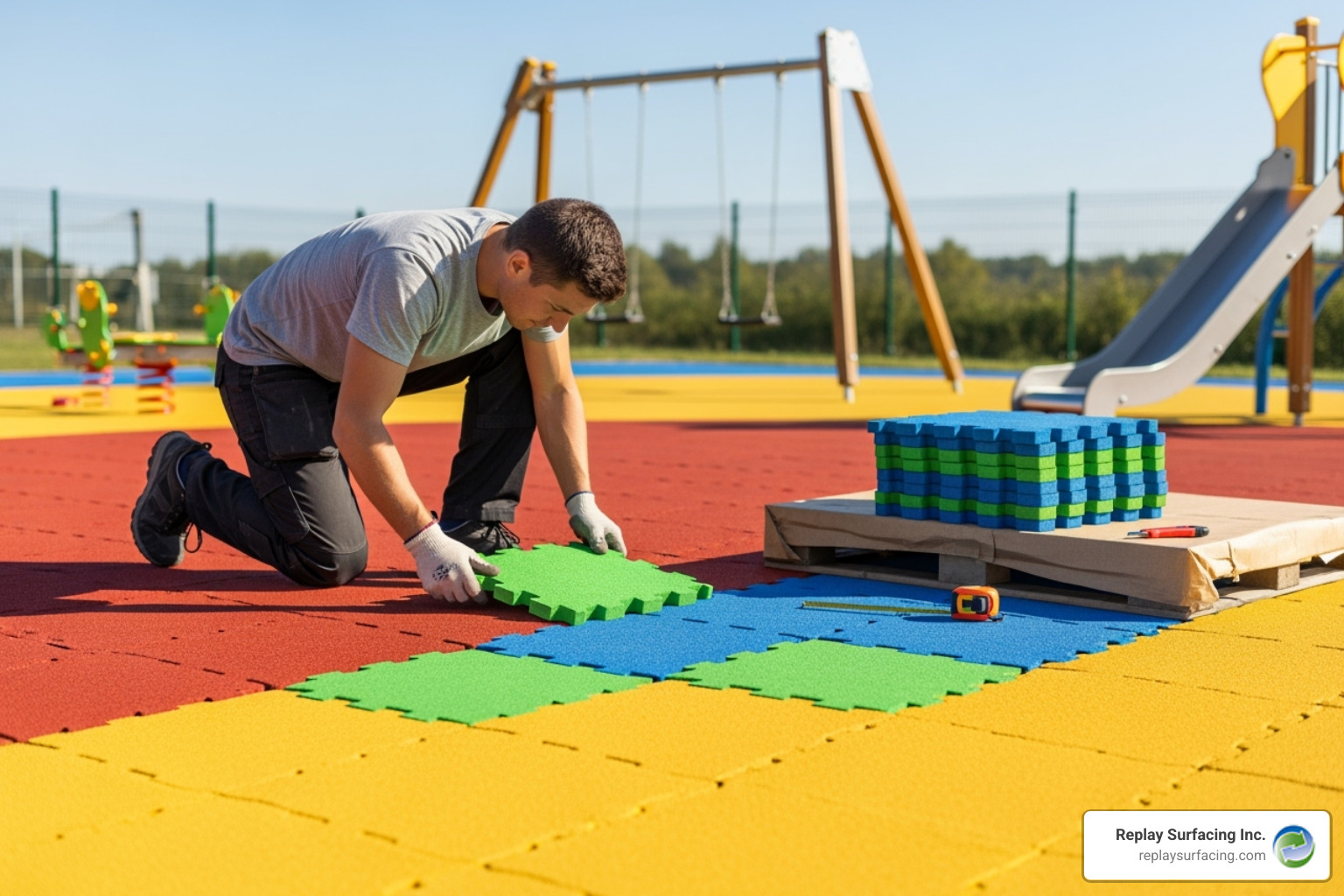
DIY Play Area Soft Flooring Options
Some play area soft flooring options are perfect for DIY installation. Interlocking tiles are a popular choice, designed for easy assembly with dowel systems or puzzle-piece edges. Homeowners in Beaverton, OR, or Indiana can install these over a hard surface or prepared stone base with basic tools. Our guide on Installing Playground Tiles provides step-by-step instructions. Another great DIY option is loose rubber mulch. Simply spread it evenly to the recommended depth over a prepped site. While DIY saves on cost, following manufacturer instructions is critical for safety and durability. Find more guidance on our DIY Playground Flooring page.
When to Hire a Professional
For larger, complex, or specialized play area soft flooring projects, professional installation is the smartest move. Poured-in-place rubber, for instance, requires specialized equipment and expert application to ensure a uniform, seamless, and safe surface. Our Rubber Resin Playground solutions showcase this precision. For commercial projects like school playgrounds in Columbia, SC, or recreational facilities in Lake Charles, Louisiana, professional installers are essential. They ensure ASTM compliance, handle complex designs, and guarantee the surface meets critical fall height requirements for your equipment. The peace of mind is priceless. Finding a certified Playground Safety Surfacing Company is key to a quality investment. Our expert teams, serving from Charlotte, NC, to Tucson, AZ, ensure your play space is installed correctly for years of safe fun.
Frequently Asked Questions about Play Area Soft Flooring
When planning a play space in Charlotte, NC, or Tucson, AZ, it’s natural to have questions. Here are answers to common inquiries about play area soft flooring to help you make the best choice.
What is the safest flooring for an outdoor playground?
The safest play area soft flooring is one with an appropriate Critical Fall Height (CFH) rating that minimizes trip hazards. For outdoor playgrounds in Raleigh, NC, or Columbia, SC, we recommend unitary surfaces like poured-in-place rubber or interlocking rubber tiles. Unlike loose-fill materials that can shift and create uneven spots, these surfaces provide a consistent, stable, and accessible surface for all children. Our Non-Toxic Playground Tiles exemplify this commitment to safety.
How thick does my playground flooring need to be?
The required thickness of your play area soft flooring is directly linked to the Critical Fall Height (CFH) of your tallest equipment. Higher equipment requires thicker surfacing to absorb impact effectively. For example, 2.25-inch rubber tiles may be rated for a 4-foot fall, but a 10-foot slide would require a 5-inch tile for adequate protection. Even thin 9/16-inch tiles can have a 20-inch CFH rating for low-level play areas. Always check the manufacturer’s specifications to ensure the flooring’s CFH rating meets or exceeds the equipment’s highest fall point.
Can you install soft flooring directly over grass or dirt?
We strongly advise against installing play area soft flooring directly over grass or dirt in places like Nashville, TN, or Beaverton, OR. The ground will shift and settle, creating an uneven surface that compromises safety and impact absorption. Proper site preparation is essential for long-term performance and includes:
- Excavation: Removing existing grass, dirt, and debris.
- Sub-base Preparation: Laying and compacting a stable sub-base, like crushed stone, to create a firm, level foundation.
- Drainage: Ensuring proper drainage to prevent water pooling, which can cause material degradation and mold.
A solid foundation is critical for the longevity and safety of your play area soft flooring.
Conclusion: Creating a Safer, More Sustainable Play Space
Choosing the right play area soft flooring is a critical decision for safety and fun. We’ve covered the importance of safety standards like Critical Fall Height (CFH), explored various materials from rubber to turf, and discussed key project considerations like budgeting, installation, and accessibility.
At Replay Surfacing, we are passionate about creating playgrounds that are both safe and sustainable. We transform discarded tires—an environmental hazard—into durable, safe, and colorful play area soft flooring. By choosing our recycled rubber products, you are building a secure place for children and making a positive environmental impact.
Whether you’re planning a new playground in Raleigh, NC, updating a schoolyard in Columbia, SC, or enhancing a park in Tucson, AZ, we are here to help. We are dedicated to serving communities from Nashville, TN, to Beaverton, OR, and from Charlotte, NC, to Lake Charles, LA, helping them build perfect, safe play spaces.
Every child deserves a safe place to play. We invite you to Explore our playground surfacing solutions to find the perfect fit for your project and build a brighter, safer future.

